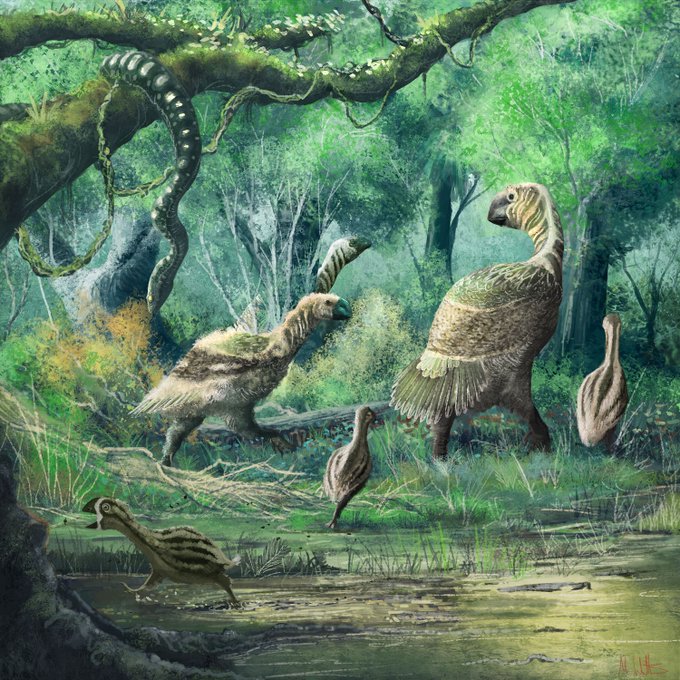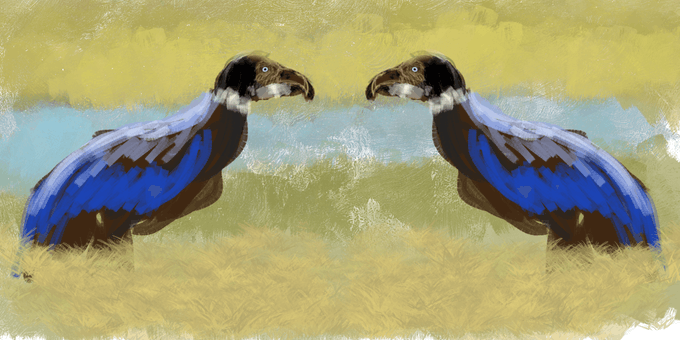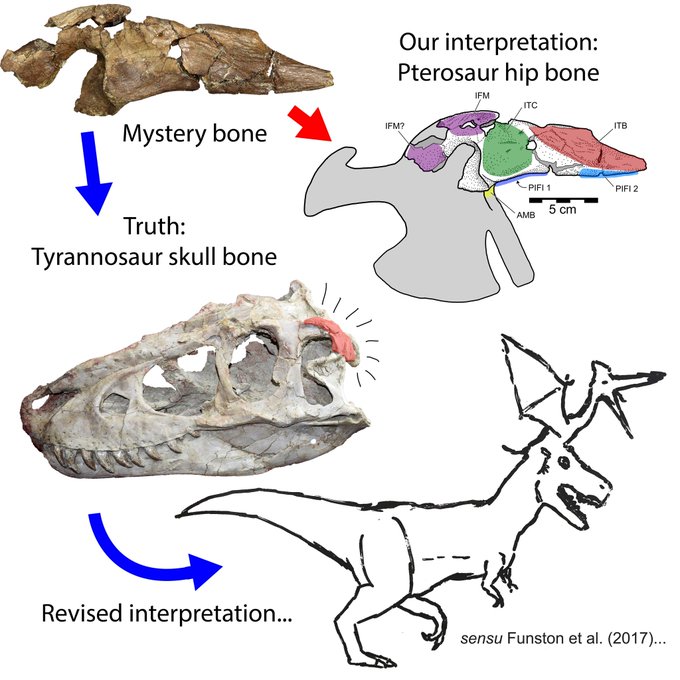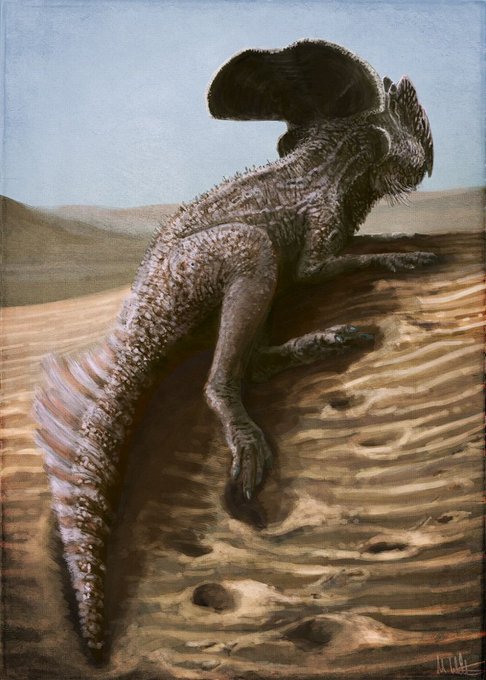fossilfriday:のTwitterイラスト検索結果。 50 件中 2ページ目
New #paleoart for #FossilFriday: nocturnal Palaeotherium magnum, the pony-sized equoid once featured at @cpdinosaurs before the model went missing. See the hi-res version of this at my #Patreon along with 100s of other artworks for just $1 a month: https://t.co/hYT35tTnmf
A new toxodont from Argentina out today in @JournalSystPal from Gastón Martínez and colleagues, in time for #FossilFriday: https://t.co/UJMbBIHjAf
New to the internet #paleoart for #FossilFriday: My take on a Gastornis family for LTTAII. I've posted various WIPs of this over the years, but not the full, final version. You get to decide what happens to the chap in the lower-left corner: there's more than birds in this image.
By gum, it's 19:35 on #FossilFriday: time to call it a day. Here's some 2016 #paleoart of the Cretaceous mammal Spinolestes to sign off for the weekend with. The fluffy tails are speculative, but the other soft-tissues are evidenced by fossil data.
Have spent the afternoon with ammonites, so here's some #paleoart of biggest one of all for #FossilFriday: Parapuzosia. A small mosasaur is being scavenged (we don't know what the ecology of Parapuzosia was, but lots of ammonites are thought to be nektobenthic scavengers).
#FossilFriday: Paleontologists discovered 3 extinct #walrus species in Orange County, CA, one of which has “semi-tusks”. This contributes to our understanding of #walrus tusk evolution.
Photo credit: (Biewer et al., 2020)
https://t.co/ieWnSDm6p7
With the conjunction of #InternationalGhostSharkDay and #FossilFriday: Echinochimaera, a stem-holocephalan from the late-Mississippian Bear Gulch limestone.
Very well-endowed in the spine department, Echinochimaera is just a slice of the group's huge Carboniferous diversity in.
Some new-to-the-internet #paleoart for #FossilFriday: everybody's favourite tiny-headed synapsid, Cotylorhynchus romeri. Yes, heads that small really went on bodies that big. You could get away with this sort of thing in the Early Permian.
#FossilFriday: Musculoskeletal reconstruction of Jurassic pterosaur Dorygnathus
#Fossilfriday: New (Beelzebufo) and old (Zhangheotherium) sketches for #paleostream
For #paleostream and #FossilFriday: Prodeinotherium, Dodo, Skorpiovenator and Sivatherium
My first mammal on digital media for #PaleoStream and #FossilFriday:
A fun #paleoart comparison for #FossilFriday: Pterodactylus restored by Jean Hermann in 1800 vs. Pterodactylus restored by me, 220 years later. Hermann's pterosaur is the oldest known 'legit' piece of palaeoart - a fossil-based life reconstruction based on science, not mythology.
Some new #paleoart for #FossilFriday: my take on Yutyrannus published in entirety for the first time this week. It was created for LTTAII, but that's coming out soon enough to let the covers slip a little on the art. A short thread about this image...
I've had a marine-filled couple of days (so many whales and sea birds!), so here's Jurassic #paleoart equivalent for #fossilfriday: Rhomaleosaurus, juvenile Stenopterygius, Parapsicephalus and many inverts. Composition is exactly how you see large marine vertebrates in real life.
#fossilfriday: throwback to when I misidentified a bone and it led to an... interesting reconstruction. Read more about how these hips did lie: https://t.co/CXagCLIC9N
#science #dinosaur #oops #shakira #paleontology #IPromiseIWillUpdateMyWebsiteSoon
For #FossilFriday: #paleoart of Protoceratops. This animal is often said to be the inspiration for griffins: though a popular idea, it's not compelling on account of ignoring a lot of historic, anatomical and geographic data. For more details, check out: https://t.co/xTq4pElHVL
For #FossilFriday: the slide that started our paper in Proc B! A jaw cross-section of a therapsid shows some teeth fused in place and others suspended in sockets. That's because they are two stages in the lifecycle of a typical tooth! Mammals keep teeth in the "earlier" stage.
Just in time for #FossilFriday: How did dinosaur inner ears grow? Can they be used to see changes in locomotion? If these questions interest you, check out our new paper with @ThePalAss! https://t.co/HaTYdzpnZ4 … @vinfernand @jonahchoiniere @ESI_FossilLab @morethanadodo
For #FossilFriday: new #paleoart of Doggerland (a landmass in what's now the North Sea) with some of its characteristic Pleistocene fauna: a (modern) walrus, mammoths, spotted hyenas, cave lions, swans and great auks. Painted for @SMTrust's 'Ancient Seas' exhibition.






































